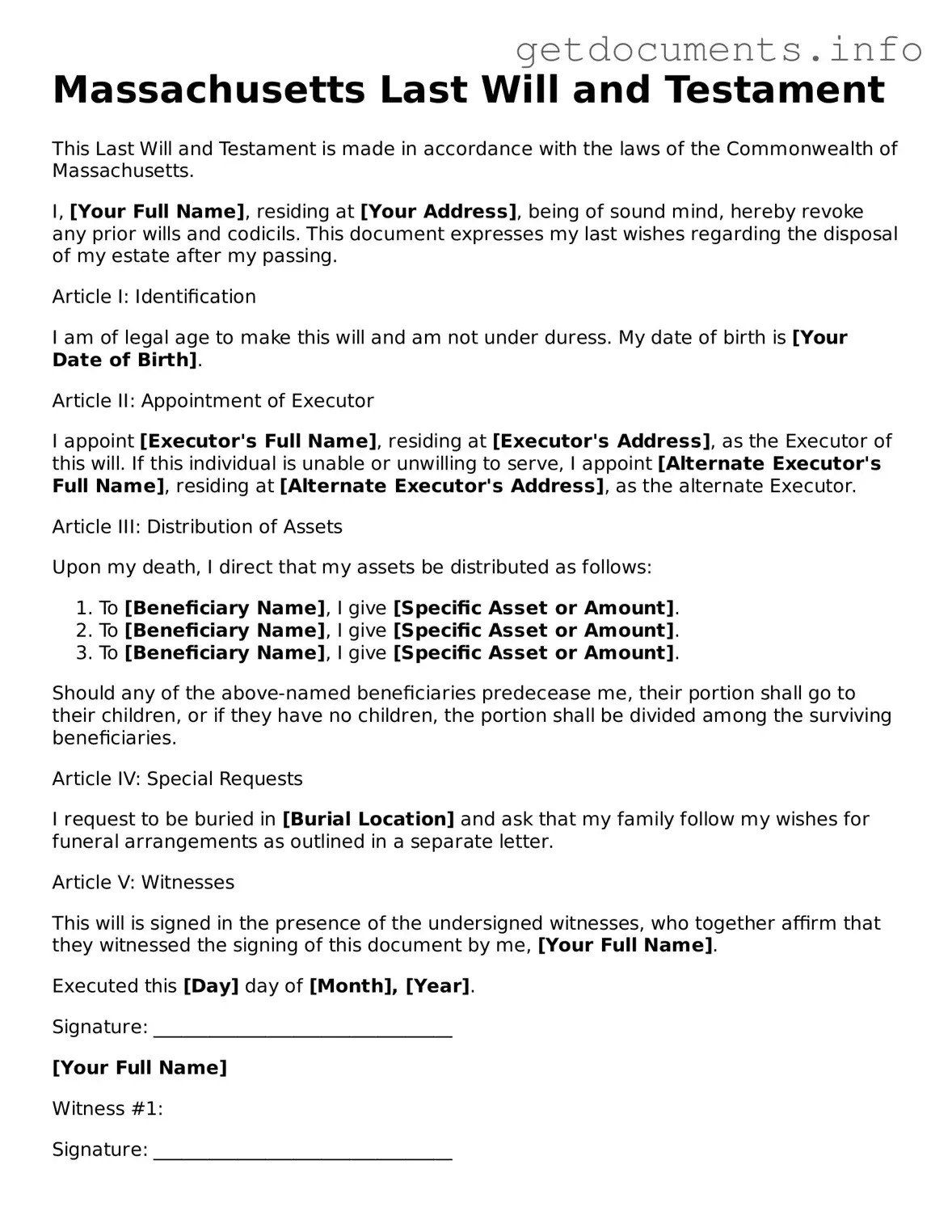Free Last Will and Testament Template for Massachusetts
A Last Will and Testament is a legal document that outlines how an individual's assets and affairs should be handled after their passing. In Massachusetts, this form provides clear instructions for the distribution of property, appointment of guardians for minor children, and other important decisions. It is crucial to complete this document to ensure your wishes are honored; take action now by filling out the form below.
Access Last Will and Testament Editor

Free Last Will and Testament Template for Massachusetts
Access Last Will and Testament Editor
Got places to be? Complete the form fast
Fill out Last Will and Testament online and avoid printing or scanning.
Access Last Will and Testament Editor
or
⇩ PDF File
